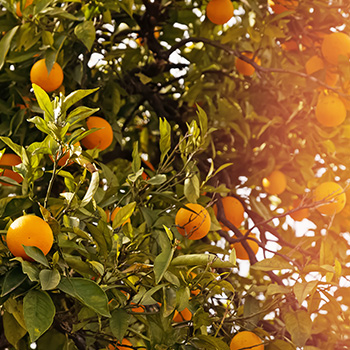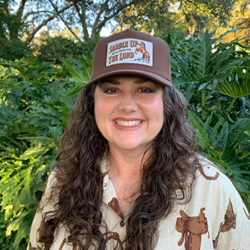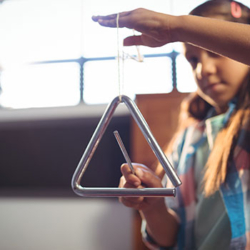“Return with us now to those thrilling days of yesteryear…” Okay, so I’m not the Lone Ranger, or Tonto, or even Silver (and no, I’m not one, just part of Silver either; shame on you for suggesting it). Not bird, nor plane, nor even frog, it’s just little ole me: Underdog. Okay, again, so I am not any of those, but perhaps you can see how I spent my summer days in the early 1960s. Yes, glued to the tube I was, when I wasn’t out traipsing the hills with my trusty old Daisy BB gun, fearless slayer of dirt clods everywhere.

We lived out in the country, such as it was.
I’m not talking “Little House on the Prairie” country, but we were 10 miles outside of the small central Florida town of Lake Wales which had sprung up a century before around a turpentine camp. In my youth, which began in late September of 1957, Lake Wales was a typical “Ridge” community in central Florida – if you study Florida’s topography, you’ll discover a sandy ridge running down the middle of the state from about Ocala to Sebring. It was pushed up, so they say, by plate tectonic activity in some ancient eon, and today it carries the remnants of an alluvial sea. (I’m sure that the sea really was “alluvial” as I wasn’t yet born in those days, but I read that somewhere once and “alluvial” is too good a word not to use it whenever one can, despite the subject’s bona fides.)
The ancient seabed is the source of the 20th-century phosphate industry in Florida, which still thrives today. NOTE: Go to the Mulberry Phosphate Museum if you are in the area and have a few hours to spare. It’s interesting, to my way of thinking at least.
The higher elevation of the ridge and its sandy soil lent themselves to better drainage and was therefore more amenable to citrus trees than the nearby coastal plains. At least it was before global commerce introduced insects and diseases that decimated the industry in the last two decades. Such is true of all societies always, one guesses: “Only the rocks live forever” – from James Michner’s Centennial. One hopes our faith in forever has a bit more solid foundation, but that is a topic for another day, plus the quote works for societies and civilizations. Moving on…
Like most mid-state Florida towns, Lake Wales grew up around the citrus, phosphate, and cattle industries—those who wanted to work harder still planted row crops.
My Uncle Ralph used to tell the story of harvesting watermelons as a teen in the 40s – he was the “catch man” who stood on the back of the truck bed, caught watermelons as the groundcrew would cut them from the vine, and tossed them upward. He would then make a half-turn and let them roll off his arms into the waiting hands of the “stacker” that would place them in neat rows, one atop the other.

Uncle Ralph tells me that after his first few nights in the “catcher” position, he would awaken from a sound sleep and find himself on his back, with his arms cramped at 90o and his forearms pointed straight towards the ceiling. We, the unfortunate ones, know that feeling: waking up to being frozen in place by cramped muscles that hurt like the devil only to ramp up the agony with any movement whatsoever. Fortunately, the telling of the tale offers us greater opportunities for mirth and levity than the actual events. So it was with Uncle Ralph, my life’s inspiration as a master storyteller. Uncle Ray (the other side of the family) was pretty darn good at it, too.
Dad was a citrus grower, having learned young and quickly a lesson best summarized by the Duke, John Wayne himself, in The Cowboys: “A cow’s nothin’ but a whole lot of trouble tied up in a leather bag. A horse ain’t much better.”
I didn’t start working in the groves until I was a teenager as they were not within walking distance of the home, but I did have “house chores.”
As a small boy, my chores were relatively minor – help mom with things like clearing the table, drying the dishes and folding laundry, as well as the dad-assigned outside tasks which included pulling weeds and raking the grass left by my two older brothers and the Jim Dandy lawn tractor. In my defense, the job was more rigorous than it might sound as we did have a really big yard and the grass was particularly heavy over a dark great strip that jutted out from the sleeping and bathing areas of the house. Erma Bombeck was right: The Grass Is Always Greener Over the Septic Tank. And yes, even late in life, I still feel the need to pull weeds and I still hate it.
As a kid, I spent lots of days lost in a book; still do.

I can remember talking about starting first grade in a few slooooowly moving months … that would have been in the summer of 1963 before a day-after-Labor-day school start date. I am fairly sure I was sitting in the back of my Dad’s Corvair (when life was happier, and I’d never heard of Ralph Nader) and leaning over the front seat. I remember talking about learning to read. That may have been the zenith of my excitement for the future that I have ever experienced.
I had a vision of an open book, a hardback (what other kind of book was there in 1963?). The book was about an inch or so in thickness. My mental rendering reveals it in black & white – no color. The book lay open. The idea of all the knowledge and all the adventures that were just out of reach and about to come into my possession as I learned to read was just the greatest thing I could have imagined. The reality has not disappointed.
During the passing of years, I have heard a few people say, “I don’t like to read.”
I’ve never been able to raise a challenge to this. The idea is so foreign to me, so absurd, so outrageous, so offensive that as of this writing, there has been no response I have been able to offer. Maybe I’ll try this: “Do you not like breathing, either?” Different things, I’ll grant you, but not by a lot.
I have much more to say on this topic, but for now, I gotta get back to my current book: Empire of the Summer Moon: Quanah Parker and the RISE and FALL of the Comanches, the Most POWERFUL INDIAN Tribe in American History.
I would have loved to experience the great American West before the coming of the European explorers, diseases, and settlers, but with indoor plumbing. Until I figure out something a whole lot more clever than I’ve been capable of in life thus far, books will have to do.
Enjoy the journey. Find the adventure. Read a book.
August 2024




